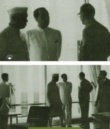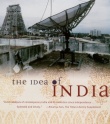Focus Areas
IEARN has chosen to focus on seven important fields within which common problems and concerns can be explored, and which promise a rich yield of collaborative research:
History of political ideas and intellectual traditions
Main coordinator: Sunil Khilnani, King’s College London
There are two reasons for such work: first, it is increasingly apparent that Europe’s own intellectual history cannot be told in isolation from its encounters with other parts of the world. Second, Europeans will urgently need to understand the forms of self-knowledge developed across time by other societies.
Law, politics and constitutionalism
Main coordinator: Phillip Dann, University of Giessen
Both India and the states of the EU are spaces defined by constitutional law and the operations of democratic politics. In both too, the relationship between the domains of law and politics is the subject of increasing practical awkwardness and intellectual puzzlement. This group will consider in comparative terms the contemporary legal and political experiences of India and the EU.
Museum and Art History
Main coordinator: Mirjam Brusius, University of Oxford
The group aims to explore the historical roots, developments, transformations, and current challenges of museums in India and Europe, both from a scholarly and practical comparative perspective. The initial thematic frame was kept broad in order to develop common questions, approaches, and perhaps collaborations out of ongoing meetings and discussions.
History of Sciences in India and China
Main coordinator: Jahnavi Phalkey, King’s College London
This group aims to illuminate core problems in the history of modern science through the lens of the Chinese and Indian cases, going beyond more usual East-West comparisons in this domain. A rigorous historical study promises to bring thereby to light how modern science has developed, or been refracted and transformed, in different contexts outside the Western mainstream.
Social democracy in India and China
Main coordinator: Sunil Khilnani, King’s College London
The exhaustion of social democracy, both as a political project and as a system of social provision for citizens, has recently been lamented across its original homelands in Europe and the West. But in the world’s two most dynamic economies and populous societies, China and India, the question of social democracy has today acquired a new urgency.
The Social Life of Commercial Trust: Comparative historical perspectives from Asia, Africa and Europe, 1600-1950
Main Convenors: Lakshmi Subramanian, The Centre for Studies in Social Sciences, Calcutta, and Yannick Lemarchand, University of Nantes
The proposed research network intends to raise new questions to explore the social dimensions of commercial practice that has generally been compartmentalised into histories of European power and Asian backwardness in the high noon of imperialism in the 19th century, or of Asian resilience and its subsequent economic miracle in the latter half of the twentieth century. While these frameworks of power and dependency, of centre and periphery have been productive and generated a considerable volume of scholarship, several omissions remain. In very broad terms, the focus area wishes to think innovatively not merely about the idea and languages of trust but also about concrete tools and devices that operated in the societies that we will review and where there were established traditions and mercantile and commercial practices that facilitated models and relations of reciprocity.
Collecting Pasts, Archiving Futures
Main Convenors: Yfaat Weiss (Director of the Simon-Dubnow-Institute for Jewish History and Culture, Leipzig) and Tapati Guha-Thakurta (Professor at the Centre for Studies in the Social Sciences, Calcutta)
The project proposes to study the proliferation of archives as a specific condition of contemporary life: a condition that has spread from institutional into familial and domestic spaces, from official repositories of records to a variety of non-official sites of storage of images, objects, speech and sound, opening up new scopes for personal, public and community histories.
Distribution and the Law: Indian and European constitutional approaches compared
Many pressing societal challenges of our time – economic crises, environmental destruction, state violence – can be described as conflicts of distribution. They raise questions not only as to how a more equitable distribution – of prosperity, capabilities, participation rights – may be achieved, but also as to how current distribution patterns have been produced and are being reproduced. Law plays a crucial role in addressing such conflicts – in India and the EU alike: It shall provide procedures for equitable distribution, enforce distributive decisions and embody normative guidance for what is to count as just or equitable distribution. Yet, law is not only instrumental in processes of re-distribution. Law is also constitutive of institutions which fundamentally shape and determine distributions of entitlements and liabilities between individuals, states, regions.
While law has an obvious role in shaping distributional structures in any society, the conversation between European and Indian constitutional scholars in this area seems especially promising. Both polities, India and the European Union, are shaped by what can be called ‘aspirational constitutions’ that not only set a frame for political power and the guarding of negative rights but also formulate economic and political ideals of fair access and distribution to be reached. Both do so in vastly heterogeneous and unequal settings of what we have started to call ‘continental polities’, i.e. societies that cannot be captured with traditional notions of the nation-state or international organization. And both are structured as multilevel, federal systems in which questions of distribution have to be negotiated at many levels at the same time, introducing a host of further questions and dynamics of distribution.
The new series of workshop would continue the conversations we had on ‘democracy in diversity’ that were immensely productive in creating a common understandings of each other and the continental polities we hail from and work in. The new series would shift the substantive focus but continue the organizational framework in that we would like to gather a group of constitutional scholars that study law in a ‘law in context’ approach, i.e. combine it with other disciplinary perspectives. The group should consist of mostly new voices from both continents.








